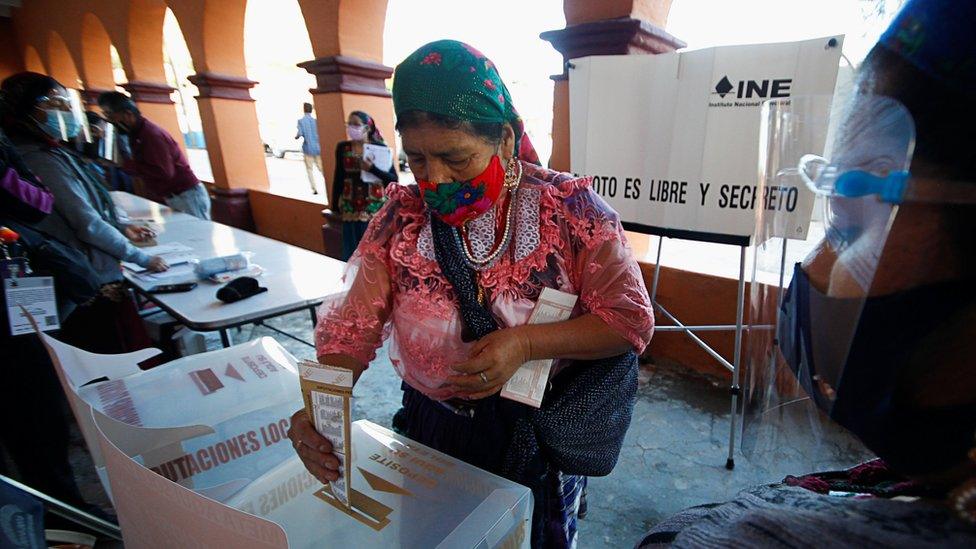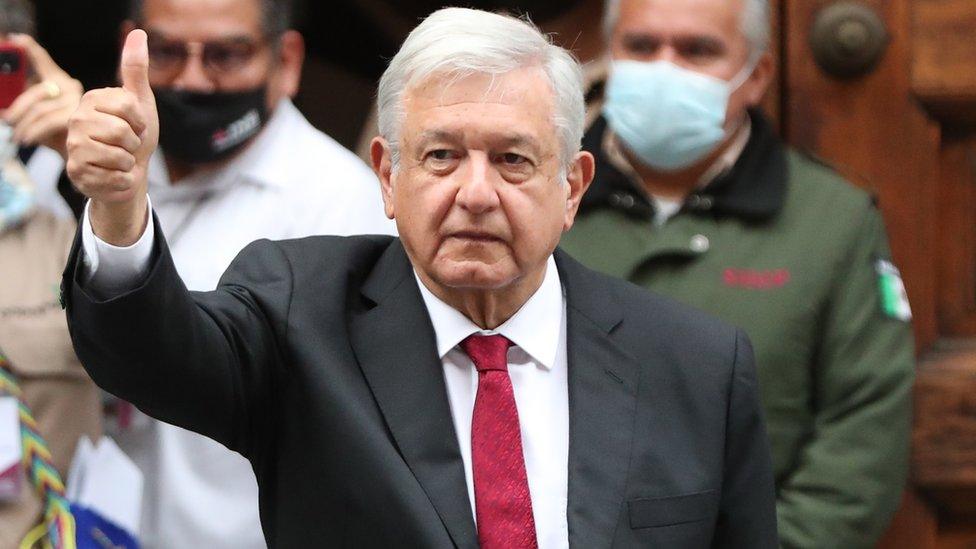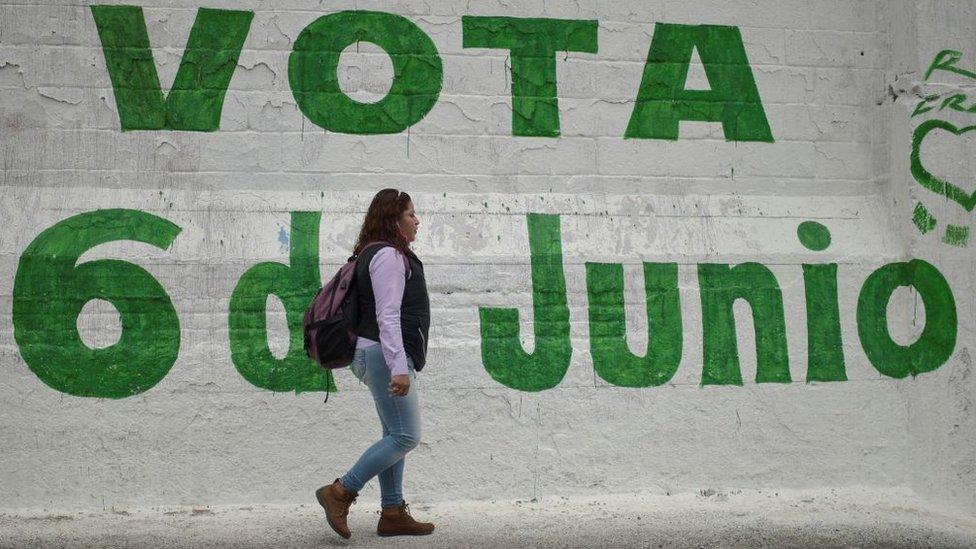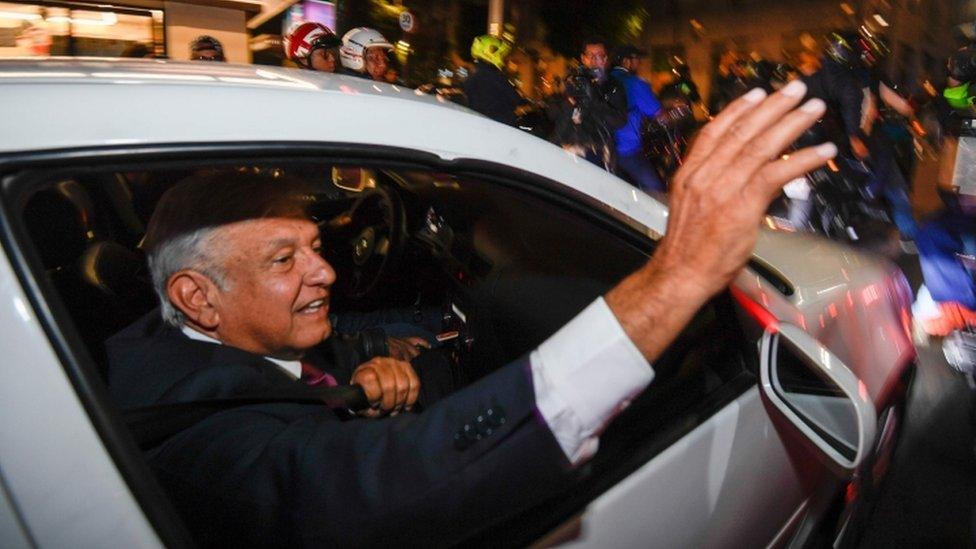Mexico elections: President's majority to shrink after crime-hit poll
- Published

The mid-term election was seen as a referendum on President López Obrador
Mexico's governing coalition is expected to lose ground in Congress after a violence-marred mid-term vote.
Early results suggest President Andrés Manuel López Obrador's Morena party and its allies will keep a majority in the lower house, but fall short of the two-thirds needed to approve major changes.
Many voters say the president failed to boost the economy and curb crime.
A severed head was lobbed into a polling station and five workers were killed on the eve of the vote.
The election was seen as a referendum on the government of 67-year-old Mr López Obrador, who is almost half-way through a six-year term.
If the results are confirmed, the president is likely to face challenges to his ambitious reform programme, which he calls the "Fourth Transformation".
Partial results show his Morena party and its allies in the Workers Party and Green Party winning between 265 and 292 of the 500 seats in the lower house, the National Electoral Institute said. That means they will fall short of the two-thirds majority needed to push through constitutional changes.
Morena itself was projected to win between 190 and 203 seats. It currently has 253.
"[The result] is a defeat for Mr López Obrador - not overwhelming - but it does weaken him and his project because it requires constitutional reforms," political analyst José Antonio Crespo told AFP news agency.
"It's an important victory for the opposition because it was able to capitalise on the discontent, although the reality is that people voted against Mr López Obrador, not for his opponents."

President Andrés Manuel López Obrador was hoping to keep his party's two-thirds majority
Despite maintaining high approval ratings, Mr López Obrador has faced increasing criticism for his handling of the Covid-19 pandemic, and his failure to crackdown on drug cartels.
Opponents also accuse him of undermining the country's institutions, such as the judiciary and electoral authorities. The president dismisses the claims, saying his rivals are part of the elite that opposes his efforts against corruption and wasteful spending.
Dolores Martínez, a housewife in Mexico City, told the Associated Press that she was pleased with Mr López Obrador's anti-corruption drive, saying: "I like it a lot."
But Olivia Aguirre, an academic, said she was disillusioned with the president, citing what she called an "authoritarian" drift of his government. "I'm not happy about the direction the country is headed," she told Reuters news agency.
Violence continued on polling day
The campaign was one of the bloodiest in the country's recent history, with more than 90 politicians killed, according to security consultancy Etellekt.
On Saturday, five election workers were shot dead in the state of Chiapas. In Mexico state, someone lobbed an inactive grenade into a voting station.
In the border city of Tijuana, a man threw a severed head at a polling station and plastic bags filled with body parts were found nearby, local authorities said.
Watch: the Mexican mayor refusing to give in to violence as she stands for a second term
Elsewhere, videos showed polling stations coming under attack with voting having to be suspended in some places.
Some 51% of an estimated 93.5 million eligible voters came out to vote. All 500 seats in the lower house, 15 state governorships and thousands of local leadership positions were up for grabs.
Related topics
- Published5 June 2021

- Published29 November 2018
